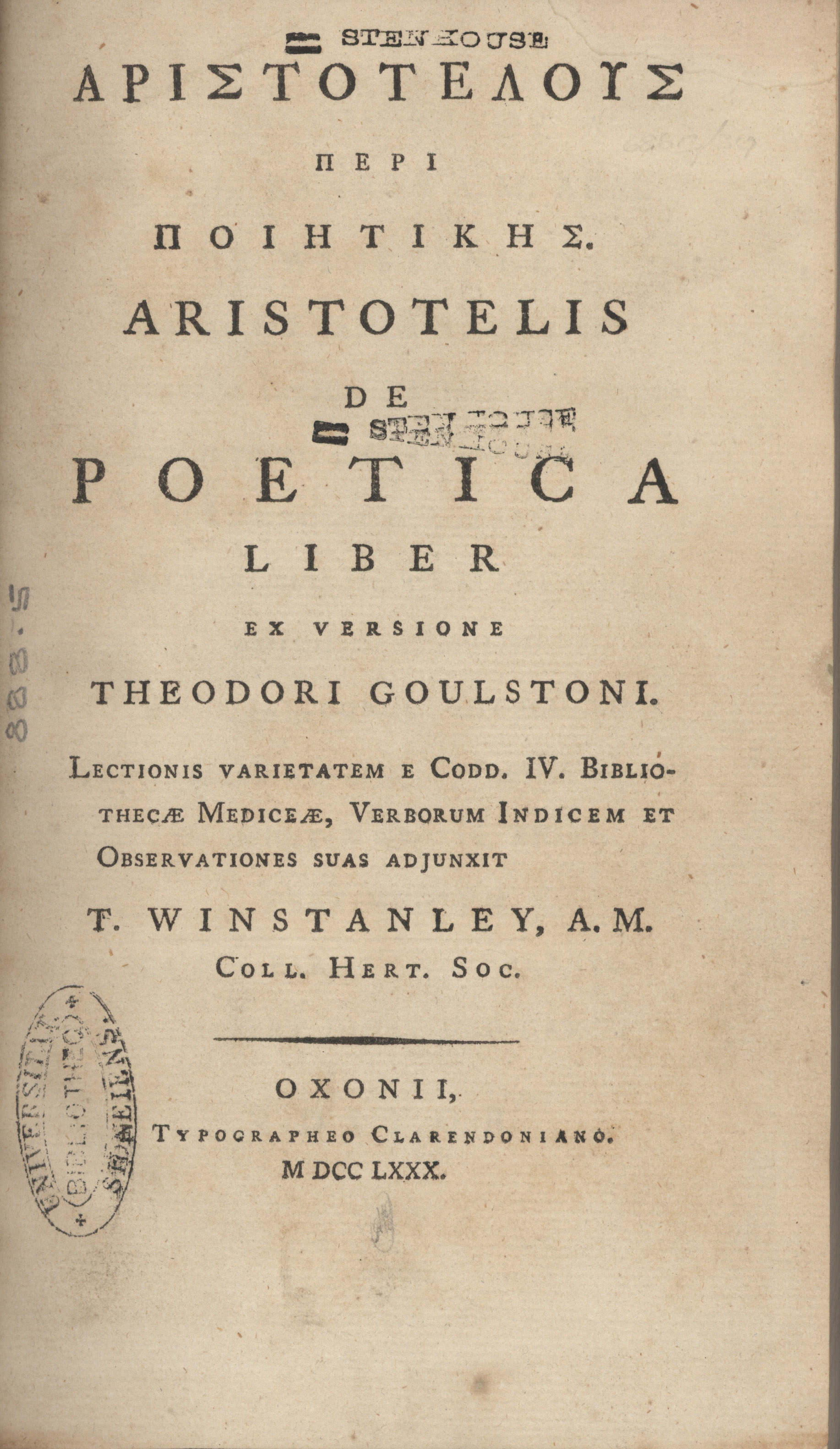
Hamartia
The term hamartia derives from the Greek ἁμαρτία, from ἁμαρτάνειν hamartánein, which means "to miss the mark" or "to err".[1][2] It is most often associated with Greek tragedy, although it is also used in Christian theology.[3] The term is often said to depict the flaws or defects of a character and portraying these as the reason of a potential downfall.[4][5] However, other critics point to the term's derivation and say that it refers only to a tragic but random accident or mistake, with devastating consequences but with no judgment implied as to the character.
This article is about the classical Greek term. For the medical term, see Hamartia (medical term). For the album by Novembers Doom, see Hamartia (album). For the moth genus, see Hamartia (moth).Definition[edit]
Hamartia as it pertains to dramatic literature was first used by Aristotle in his Poetics. In tragedy, hamartia is commonly understood to refer to the protagonist's error that leads to a chain of actions which culminate in a reversal of events from felicity to disaster.
What qualifies as the error or flaw varies, and can include an error resulting from ignorance, an error of judgment, an inherent flaw in the character, or a wrongdoing. The spectrum of meanings has invited debate among critics and scholars and different interpretations among dramatists.